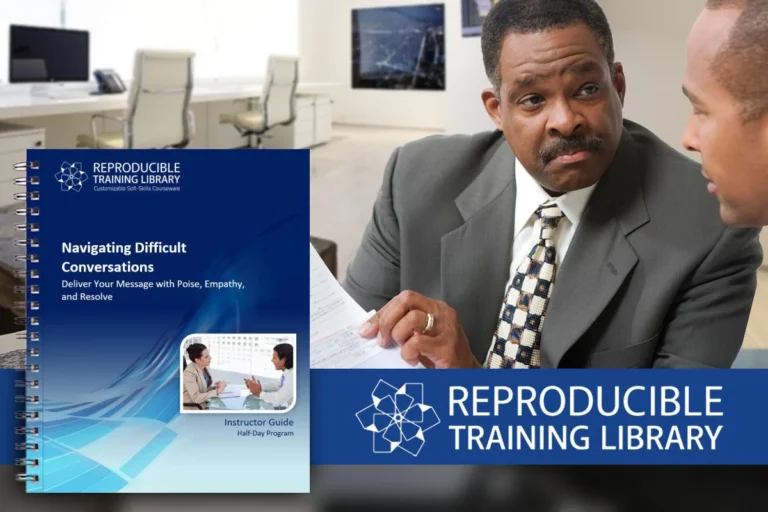

In this episode of HRDQ-U In Review, host Sarah sits down with negotiation expert Laura Browne to talk about one of the toughest, and most important, career skills: asking for more money. If you’ve ever wondered how do you negotiate a salary effectively, this conversation provides actionable guidance.
Laura shares the story of her first unsuccessful attempt at requesting a raise – an experience that sparked her mission to help others confidently advocate for their worth. Since then, she’s authored Increase Your Income and A Salary Cinderella Story, guiding professionals (especially women) to approach salary conversations strategically and fearlessly.
Together, Sarah and Laura unpack the key principles behind effective salary negotiations, including how to research market rates, build a solid business case, and understand the timing of company raise cycles. Laura also offers practical advice for keeping the conversation professional, even when the answer is “not yet,” and explains how to turn that into a roadmap for future success. By the end, you’ll clearly understand how to negotiate a salary to maximize your outcomes.
Key Takeaways:
Action Items:
00:02
Welcome to this week’s episode of the HRDQ-U In Review podcast, where we bring you the latest insights and practical tools for enhancing soft skills training in your organization. I’m your host, Sarah, Learning Events Manager here at HRDQ-U, and today I’m joined by Laura Browne to talk about the webinar, More Money: How to Ask for a Raise or Higher Starting Salary.
00:24
Now, before we dive in here, don’t forget to subscribe to our newsletter at HRDQU.com for exclusive updates, upcoming webinars, and free resources to help you and your team excel. And if you enjoyed the show, please follow us and leave us a review on your favorite podcast platform. It really helps us out. Laura, welcome. Thanks so much for being here today. Oh, thank you so much, Sarah, for having me here. I really appreciate it.
00:47
So to get started, can you share a little bit about your background and what inspired you to focus on helping people make more money at work? OK, well, unfortunately, the first time I asked for a raise, it went really badly. And actually, that’s what started me off. So I was early in my career, and I was sure I deserved a raise. And I did some research. And I went in, and I talked to my boss. And he immediately shut me down. I mean, he immediately said no.
01:14
And I was mortified and I went home that night and I remember thinking, I can’t go back to work. I’m going to have to quit. This is awful. And I talked to a friend of mine and she said, well, well, what did he say? Why did he say you weren’t getting a raise? And I said, he didn’t, he just said, no. Anyway, she talked me into actually talking to him the next day. And so I sat him down and I talked to him I said, can you, you know, so tell me what happened. Why? And I had a, I had practices. So can you help me to understand why you said no?
01:44
to my raise request yesterday and he said, oh, well, it’s not a problem. You’ll get a raise when it’s raise time. And until that moment, I didn’t realize that companies had a particular raise time and it turned out my company twice a year had raises and I didn’t realize that. And so then I asked a question, which thank goodness I asked this, this is a great question. I said, well, tell me what I need to do to get the best raise possible when it’s raise time. Cause he was ready to say, oh, you know, you’re fine, you’re fine.
02:12
And so then we started some discussions. And so I made some adjustments so that when it was raise time, I really did get the best raise possible. And that really started me on my quest, because I didn’t want anybody else to do what I had done. And actually, though it is funny, I’m still in contact with that boss many, many, years later, because he was just, he was so wonderful. And I’ve told him that story and he laughed. But since then, I started coaching people because I realized, oh my gosh, people don’t know this and people are going to go through the same thing.
02:42
And then a couple of years ago, I wrote a book with a friend of mine called, Increase Your Income: Seven Rules for Women Who Want to Make More Money at Work. Now, it’s not just for women. I use the same seven rules for everybody. But it focused on women because I really found a lot of women were so scared to talk about money. And then my friend and I decided, you know what, let’s make it kind of fun, because money isn’t really fun to talk about. And so we took the same stuff that was in the non-fiction book and we put it in a fiction book.
03:10
called A Salary Cinderella Story (Or How to Make More Money Without Your Fairy Godmother). And so that way, we could take all the seven rules and we could make it kind of fun and talk about three people who were struggling at work. So I just love to tell the story because I love to help people to make more money at work. And I’ll have those books linked below in the description because I’m sure everybody’s excited to read them after you just shared that little tidbit. Now, for anybody who missed the webinar.
03:38
What’s the big takeaway? Why is learning to advocate for your value such an important skill right now? Oh, OK. Thank you for asking, because it is. Here’s the deal. Nobody is going to hand you money. oh mean, budgets are tight. If you don’t advocate for yourself, the person that is going to ask for money is the one that’s going to get it. And if you think, I work with six other people on my team or whatever, as long as you’re all doing a good job, the person that says it
04:08
is going to get it. And again, you’re going to think, no, no, no, I’m doing a good job. They’re going to give me money. Not necessarily. So I’ll tell you a story. I talked to, I was coaching somebody and she asked her manager for a raise and he immediately said, yes. Now that doesn’t happen very often, but he’s like, oh yeah, yeah, I’ve been thinking about giving you a raise. And she got really upset about it. And she’s, well, what stopped you? And honest to goodness, he said, well, I didn’t think it was important to you. And I mean,
04:35
Come on, we’re all working for a reason. And so she realized if she had asked him a couple of months earlier, because apparently he was thinking about it a couple of months, she would have gotten more money a couple of months before. And she said, well, why didn’t my boss know that money is important? Of course it’s important. Well, it’s because she hadn’t talked about it. She talked about other things that she really liked about the job. So your boss might think it is not the most important thing, so I don’t need to give you a raise. So you absolutely.
05:04
have to talk to your boss about it. Otherwise, you’re not going to get it. I’m seeing the common theme here. It’s communication. Communication is the key. Absolutely. You got to say it. Yeah. And so many people struggle to talk about money, as you mentioned shortly ago. What do you think causes that hesitation, and how can people start to overcome it? Well, that’s a tough one. So I remember there was a time when they said, don’t talk about money, sex, or politics. And now we’re talking about sex and politics.
05:33
but we still don’t talk about money. It’s still really taboo. And I get it, it is really uncomfortable for people. And I think really in my conversations with people, what I’m finding is it brings up questions of self-worth. Maybe I’m not worth it. If I was worth it, they would give it to me. Absolutely not. Nope, nope, nope. This is simply about the numbers. It’s not about your value as a person. So you need to get beyond that. The fact is we’re working to make money and it’s important to talk about. And actually in the book,
06:03
Ray’s rule number one is it’s business, it’s not personal. Now it feels really personal, okay? It feels really personal when you think, wow, I don’t know if I can make rent this month, but if the fact is your company does not care about that and you’re not gonna bring up, I need some more money for rent or I need some more money to go on a great vacation. They do not care. It’s all about though talking about it in a business way because it’s business.
06:28
And so when it comes to negotiating a raise or starting salary, what mindset shift helps someone feel more confident going into that conversation? Well, again, I’m going to connect it back to what we just said, that you need to disconnect it from your worth as a person. I like to think of this as problem solving with your manager or with your manager at a new company if it’s a new job. And so first of all, the first mindset I say is do your research.
06:58
So get on salary.com, get on Indeed, get on one of the other places that has salaries and find out for your area, for your industry, what should you be paid? And so a lot of times just finding that out will give you more confidence like, oh, okay, I could be making another $30,000. So that’s the first thing I say. Another thing, this is raise rule number three, build a business case. So what you wanna do is before you even think about talking to your boss, start to put together reasons you should get a raise.
07:27
How are you making or saving money for the company? Again, it’s not about, I worked really hard, I worked all last weekend. You’re not gonna get more money for that. It’s about what it is that you do that brings value to the company. So shift your mindset to that and start working on putting it together. Sounds like really knowing your worth helps you eliminate that fear of rejection that maybe comes along with having that conversation. Absolutely, that can make such a big difference.
07:56
Because again, you really need to walk into the meetings knowing I deserve more. And by finding out the facts and putting together information, that can help you to figure it out. And that’ll lead me to my next question here. So preparation can make all the difference, as we know, as you just kind of touched on there. What steps should someone take before asking for a razor promotion? OK, well, I’m going to toss this out there for anybody who is listening. Do this today. OK, I’m going to challenge you. Do this today.
08:26
Because what you should be doing is you should start putting together weekly updates with results so your manager knows what you’re doing. I hear all the time, oh, but my manager knows what I’m doing. I don’t need to put it together. Okay, here’s the deal. Your manager is busy. And so yeah, they might know, you know, they know generally what you’re doing, but they’re also worried about their career and they’re worried about the other people. So what you need to do is write it down.
08:54
And every week, and sometimes people have to have very repetitive jobs every other week, but really every week just write down the key things you’re working on and the results that you’re getting. And it’s not only to remind your manager what you’re doing, because again, you’re building the business case, it’s when it is raise time, you can put this all together in a summary and you can be prepared and talk about, I’ve done this, this and this. In addition, you want to make sure
09:22
that your boss has the information to give to their boss or to give to HR or the compensation committee. Because typically your manager is not the person that makes the final decision. Your manager is the person that starts the conversation. So make sure that you are giving this information to your manager. Now, the other thing that I’m gonna suggest is gonna sound so simple and so kind of ridiculous, but I’m gonna say it anyway. Find out what is important to your manager and the company right now.
09:50
now and focus on that because you might be thinking, oh, well, I know what’s important to my boss because I knew the direction three months ago. Well, you know, things change constantly. And again, you might be doing an amazing job on something that was important to your boss or the company three months ago. But if there’s been a shift and you don’t know it, then, you know, again, you’re not focusing on what they care about. And you would think that your boss would tell you and you hope so.
10:17
But I always want to say, go to your boss and say, I just want to confirm what are the most important things that I can work on for you? Or what are the most important things that the leadership is focused on now? And that can also help you to start looking forward and think about, OK, what is the company focusing on? And then the other thing you need to do, you need to prepare. Find out what the company’s process is for giving a raise. Like if I had asked my boss or asked somebody else in human resources. So,
10:46
what is our process? How do you get a raise? They would have told me, okay, twice a year, your boss can put you in for a raise. So you need to find out what your company’s process is. Now, I’m going to say one other thing about that. Let’s say you find out, well, my process is in six months or in four months, you know, my, you know, that’s when we get raises. Do not wait until you are sitting in front of your manager and your manager is giving you a 3 % raise. It’s too late.
11:15
Okay, you need to start working on this like four months in advance. So when they start getting the raise budget numbers, they can think, oh, Laura has asked for a raise, Laura deserves a raise, I need to give her a bigger part of the budget. Because otherwise, again, if you wait too long, it’s too late and they’re gonna say, well, the decision’s already made this time, we’ll talk about it next time. So preparing, getting all this information and starting to work on it now is what’s gonna help you.
11:42
And a lot of people worry that they’ll hurt a relationship by asking for more money. How can they approach the conversation in a way that keeps it positive and professional? Yeah. Well, and I want you to think about this. Think about this as a problem that you and your manager want to solve together. And you might be thinking, no, no, no, my manager is the one that’s stopping me from getting a raise. But honestly, that typically is not true. And rule number four is work with your boss. And probably,
12:11
Your manager, as long as you’re doing a good job, probably your manager is your biggest advocate and would really like to give you a raise. And I can’t tell you how many times somebody would come into my office or call me up, because I was in Human Resources and would say, oh my gosh, my best employee just quit to make more money. Please, please help me to give them more money they need to stay. So your boss doesn’t want to have to go through that. So your boss really does want the opportunity to know.
12:38
Even though a lot of people are like, I’m just going to quit. It’s easier. No, give your boss the opportunity. Now, when you’re asking for it, what you want to do is you want to stay curious and problem solving. So, you know, if your boss is like, well, I don’t know, which honestly, that’s the biggest answer because chances are you’re not going to get a yes right away. It’s I don’t know. So just really listen. Don’t argue. Ask things like, well, you know, what would have to change?
13:05
or what’s the process, or can you help me to understand why this is important that I work on this? Or if they say you need to work on something else, of all, can you tell me what that would look like? So again, it’s all about solving the problem, stepping back, not feeling personally slighted because they’re not immediately giving you thousands of dollars more. But again, really thinking about, so what can we do together to make this happen?
13:31
And you’ve coached so many people through this process. Is there a success story that really stands out to you? Oh, I have so many of them. OK, you know what? I’m going to cheat. I’m going to give you two. OK, so the first one, this is a really funny one. So I coach somebody to ask for a raise. And again, she was one of them. Is it OK that I asked for a raise? And I said yes. And I coached her and she asked for a raise. And she got a raise. And she was super, super excited. Then what happened, though, is that
14:01
She told her sister about it. So her sister who worked at another company asked for a raise, not only got a raise, but got the use of a company car. And so I loved this story because it wasn’t just that one person got more, this person shared it. And so I always tell people, share this stuff, share with other people what they can do and how they can make more. You don’t have to give them the dollar amount, but tell these stories so other people can do it. All right, number two.
14:28
This is one my other favorite ones because this is a story about somebody. She was applying for a job and she wanted to get the best salary possible at a new job. Obviously that’s big deal. And so I was coaching her and she said, look, I just can’t ask for more money. And I said, okay, tell me why. She said, well, because it’s a government, it wasn’t actually a government job. It was a government linked job. It was kind of a funny situation. She says it a government job and they have strict rules about how much to pay.
14:56
And so we talked about it and she decided, okay, you know what? I will go ahead and ask, even though I know that there is no more money. So she asked and literally what the person said was, oh, yes, what are you thinking about? When she said, you know, is there some more money? Oh yeah, what are you thinking about? And she was stunned for a minute. And what happened was the woman, cause they had built a good relationship and the woman wanted her to work there. She wanted her to work at this company and they’d given her the offer. And she said, listen, we have different ranges.
15:26
And you know what, let’s talk about, let’s see if we should put you in a different range, because you have some management experience. And so what happened was through a different conversation, they decided that her salary range should be the higher salary range. So she did end up getting more money. And so I tell that story by saying, I have heard so many times, no, I can’t do it, no, I shouldn’t, no, no, no. And then the person tries it, and obviously not all the time, but I’ve heard plenty of stories like,
15:54
You can’t believe what just happened. Oh my gosh, I did get more money. So go ahead and try it. You are more likely to get it if you ask. And I would say, if you don’t ask, you don’t get. Yeah, absolutely. And then so what about for a listener, for someone who hears no or not right now, that can be really disappointing after making um their ask. What would you recommend that they do? What advice And I’m so glad you asked that.
16:22
The fact is no or no right now is a lot of people are going to get that. Absolutely. And especially no right, not right now, because maybe the boss has to think about it or the boss has to agree, or maybe it’s not raise time. So, so don’t do what I did, which is get upset about it. Okay. So stay calm and then do what I did the next day, which is say, you know, can you help me understand what’s getting in the way? And then the information might come out or say, what would have to change for me to get a raise? Now.
16:51
Remember, it may have nothing to do with you. So after you ask, oh, well, tell me what’s going on or can you give me more information? And I’d say, well, it’s a bad time for the company. We’ve stopped all raises. Oh, okay. So that gives me some information. um So again, just calm yourself down and ask. Now, I will say, if somebody says no, barks at you or you’re upset about it, then stay calm and just say, well, thank you for letting me know. If I have questions, I’ll come back and talk to you.
17:21
Don’t feel you have to talk about it then. If you’re really upset, stop the conversation, then prepare yourself and come back and say, hey, I talk to you a little bit more about what you said yesterday and do it soon, not a month later. And then have that good conversation and the problem-solving conversation where you ask for more information. don’t be afraid to hear no, because the other thing is no may give you the information that you need. So let’s, and I’ve heard this plenty of times where somebody got,
17:51
No. And they said, well, what’s the problem? They said, well, you’re not doing X, Y, and Z. Oh, I didn’t realize that. Then they do X, Y, and Z. Then they get the raise. So if you don’t ask, you won’t find out what’s stopping you. So don’t be afraid to know. And so for our listeners who want to take action right away, what’s one small step that they can make today to start earning more money in their current role? Absolutely. OK, I’m going to go back to my challenge. Start doing the weekly updates.
18:19
And so I’ll tell you a story. So I was working with somebody and he did not want to do these weekly updates and he said I don’t want to boast my boss knows what I’m doing all that other stuff, but ah He decided okay. I will do it. And then when I talked to him next time he said oh my gosh my boss mentioned one of the things that I put in my weekly update in a big team meeting with the other leaders and You know gave him kudos, but also took his own kudos because it made that boss look good.
18:49
So the reason I say this is don’t think I’m boasting. Realize you’re giving your boss information that can help them, that can help the company. Because again, you may think that they know what you’re doing, but they’re not really thinking about it. And even if they think, oh, Laura is working on this and this, they might not think about the results. And so for example, instead of saying, uh I booked a conference that we’re doing.
19:16
say a book to conference that we’re doing three months early so we could get a better discount leading to this much savings. Oh, that’s something your boss can go to their boss with. So again, start today, start those weekly updates, even if it feels uncomfortable. And finally, Laura, where can people go to learn more about your work and connect with you? Oh, thank you for asking. So my website, which is careercoffeebreak.com, which gives you quick.
19:42
career tips to sip with your coffee. So careercoffeebreak.com. And you can go and look at books and courses. So you can find my books there. And by the way, you can get a big discount on my newest book called Interview Speak, what your interviewer really wants to know. So if you’re looking for a new job, go ahead and get that. Also, they can find my classes and salary coaching there. So there’s a class on how to get a raise at work. There’s a class on…
20:07
how to get a higher starting salary at a new job. These are all short little things that you can again, bite size pieces that you can learn. And because you’re listening here, you can get 25% off the classes and coaching by using the discount code HRDQU. So I hope you will do that. And you can also reach me at Laura at careercoffeebreak.com. So send me a question, send me, you what you’re curious about. I’d be happy to talk to you.
20:34
Great. And of course, we will have that information linked down below. If you have not checked out the webinar, we’ll have that linked down below as well. I highly recommend you do so. Laura, thank you so much for sharing your insights with us today. Oh, thank you, Sarah. I really, really appreciate it. I am passionate about helping people make more money at work, and I just really appreciate the opportunity to share these ideas. So thank you.
20:58
Yes, and thanks to all of you for listening to the HRDQ-U In Review podcast, brought to you by HRDQU.com. If you enjoyed this episode, be sure to follow us and leave us a five-star review on your favorite podcast platform. We’ll be back soon with more conversations to help you and your team grow stronger one skill at a time. Thanks, everyone.


Listen to this podcast event at no charge with your
HRDQ-U Free Access Membership
In this episode of HRDQ-U In Review, host Sarah sits down with negotiation expert Laura Browne to talk about one of the toughest, and most important, career skills: asking for more money. If you’ve ever wondered how do you negotiate a salary effectively, this conversation provides actionable guidance.
Laura shares the story of her first unsuccessful attempt at requesting a raise – an experience that sparked her mission to help others confidently advocate for their worth. Since then, she’s authored Increase Your Income and A Salary Cinderella Story, guiding professionals (especially women) to approach salary conversations strategically and fearlessly.
Together, Sarah and Laura unpack the key principles behind effective salary negotiations, including how to research market rates, build a solid business case, and understand the timing of company raise cycles. Laura also offers practical advice for keeping the conversation professional, even when the answer is “not yet,” and explains how to turn that into a roadmap for future success. By the end, you’ll clearly understand how to negotiate a salary to maximize your outcomes.
Key Takeaways:
Action Items:
[ PODCAST PLAYBACK ]
You must be signed-in with your membership account to access this content.
Enjoyed this podcast? Have suggestions on how we can improve? Please take our quick survey and receive a coupon for 15% OFF any of our individual membership plans.

*Instant 15% coupon available upon completion of survey.
Want to learn more? Become an Individual or Corporate member to watch this and hundreds more webinars!
Learn how to ask for a raise or negotiate starting pay with confidence using the 7 Raise Rules and proven strategies to maximize your earning potential.

Laura Browne
Laura is a speaker, trainer, and coach who helps individuals and leaders be more successful at work. At Career Coffee Break (www.careercoffeebreak.com), she shows people how to make more money at work by negotiating raises and higher starting salaries at new jobs.
Laura’s newest book, Interview Speak: What Your Interviewer Really Wants To Know, helps readers translate what interviewers are saying so they can give their best answers and get the jobs they want. She is also the author of other business books, including Help! My Company Swiped Left! and Increase Your Income: 7 Rules for Women Who Want To Make More Money at Work. She has also written fiction books, including A Salary Cinderella Story (Or How To Make Money Without A Fairy Godmother).
She was a Senior Director of Human Resources for a global tech company. She has extensive experience in leadership and management development and has coached and trained leaders from Fortune 100 companies.
Laura has written for Forbes and has been quoted as a business expert in major publications, including Cosmopolitan, Family Circle magazine, and USA Weekend.

Get quick, practical career tips to sip with your cup of coffee. Classes and coaching are available on subjects including how to ask for a raise and how to negotiate a higher starting salary at a new job.
Training Tools for Developing Great People Skills
This event is sponsored by HRDQ. For 45 years HRDQ has provided research-based, off-the-shelf soft-skills training resources for classroom, virtual, and online training. From assessments and workshops to experiential hands-on games, HRDQ helps organizations improve performance, increase job satisfaction, and more.

Navigating Difficult Conversations Customizable Courseware
Master a seven-step process for handling tough conversations with confidence, using real examples and role-plays to turn challenges into growth.
Buy at HRDQstore.com
Negotiating Style Profile
Increase your influence and negotiate with confidence. Learn your unique style, apply proven strategies, and turn every deal into a win-win. Start securing stronger agreements today.
Buy at HRDQstore.comThe HRDQ-U In Review Podcast, brought to you by HRDQU.com, brings you the latest insights and practical tools for enhancing soft-skills training in your organization. As a learning community for trainers, coaches, consultants, managers, and anyone passionate about performance improvement, we interview subject matter experts and thought leaders from recent webinars they presented with us to take a deeper dive into the content they shared and answer all your questions. Join us as we explore new ideas and industry trends, share success stories, and discuss challenges faced by professionals.
The HRDQ-U In Review Podcast is intended for HR and training professionals, organizational development practitioners, and anyone interested in improving workplace performance and productivity.
New episodes of HRDQ-U In Review are released every week.
The length of the episodes varies, but they typically range from 15-30 minutes.
The podcast covers a wide range of topics related to HR and organizational development, including leadership development, team building, communication skills, conflict resolution, employee engagement, and more.
No, HRDQ-U In Review is completely free to listen to.
You can listen to any available HRDQ-U In Review Podcast right on our website at HRDQU.com via our embedded Spotify player on the related webinar page. In addition to our self-hosted option, you can find the HRDQ-U In Review Podcast on many of the popular streaming services, which are listed above.

Download our catalog of our top 20 most popular webinars.